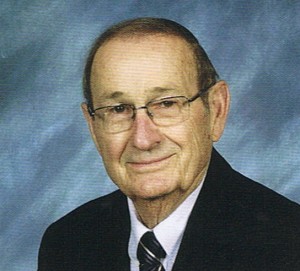
Contentment is hard to come by. Just when I think I’m content, I get a phone call, or see something on TV about a kid being brutalized, or a letter from “smile train” with the picture of a distorted-faced child, and they are begging for donations. This is just a tip of the urgent call to help correct situations that are pitifully wrong.
In the summer of 1934, the famous theologian Reinhold Niebuhr was vacationing at his summer cottage near Heath, Massachusetts. As often happened, he was invited to conduct the services on Sunday in a small church nearby. At the end of his sermon, he offered this prayer, “O God, give us the serenity to accept what cannot be changed, courage to change what should be changed, and wisdom to distinguish the one from the other.” At the end of the service, someone asked him for a copy of it, whereby Niebuhr reached into his Bible and got out a crumpled piece of paper and said, “Here, take this Prayer, I shall have no further use for it.
Niebuhr didn’t realize how much impact this prayer would have. The man who received the prayer put it on his Christmas card, and the found of Alcoholics Anonymous saw it, and adopt it as their official motto. The USO picked it up and printed millions of copies during World War II, and even today it is still used by multitudes. Niebuhr may not have sensed any further use for the prayer, but it has become the most loved and widely known prayer in the world, next to the Lord’s Prayer.
Why has this prayer become so powerful? We are, day by day, confronted with two kinds of realities. On the one hand are things we cannot change; those realities that will still be there after we have ranted and raved and condemned. We can say, “Ain’t it awful?” all day long, and never change a thing. There will always be those things that can be changed and ought to be changed. We need the wisdom to distinguish the one from the other.
This prayer is uniquely biblical. In the Genesis account of creation, God made the world, and right in the middle of creating it, God made man and invited him to participate in the completion of the enterprise. Man’s place is right in the middle, as sort of a co-creator, amid that which has already been done and before what was yet to be done. Man is called on to be fruitful, to multiply, “to exercise dominion over the plants and animals”. God gives to humans—males and females—the gift in incompletion. The male and female roles can also apply to the different ways of relating to life.
For example, the male role, in classic terms, has been understood as that of the initiator—the instigator, the one who makes things happen. The female role is that of the responder—the consenter, the one who allows things to happen. In the Christmas story, the angel Gabriel appeared to Mary and told her of great things being proposed for her by God. When Mary responded to this by saying, “Let it be to me as Thou has spoken,” this is a classic illustration of the feminine role. Now, the point of the Genesis account is that both of these roles are needed. One is not superior to the other, and there are times when they need to switch roles. To be only male—that is, always instigating—or to be only female—always consenting—would be incomplete humanness. This has finally reached our awareness as human beings. This is exactly what Niebuhr calls for in his prayer. There are times when it is appropriate for every person to act from a feminine role and say, “Let it be to me as it must be. Here is something I cannot change, but I must accept. I consent.” And there are times when it is appropriate to act out of the masculine role and say, “Here is something that we can change. Let us create.” It is a wise thing to act out of the male and female roles. Wisdom comes when we realize which role is appropriate. To accept things or to change them…that’s the issue.
Paul was acting out of the female role when he wrote to the Philippians: “I have learned in whatever circumstances I am in, to be content” (4:11). He knew how to accept the things he couldn’t change; look at the impact of his writings. He brought change wherever he traveled and won people to a new way of thinking. Paul had more problems than you could shake a stick at. The thorn in the flesh gave him fits, but he finally learned how to accept it and move on. He learned how to be content despite his difficulties.
So, if you are faced with tremendous difficulties, illness, ill-will or whatever, stop and ask, “What are my options? What are the things I can do something about? And what are the things I need to accept, by the Grace of God?”
This New Year will bring changes and challenges to all of us. May God help us to accept the things that can’t be changed, the courage to change the things we can, and the wisdom to know the difference. Amen.









